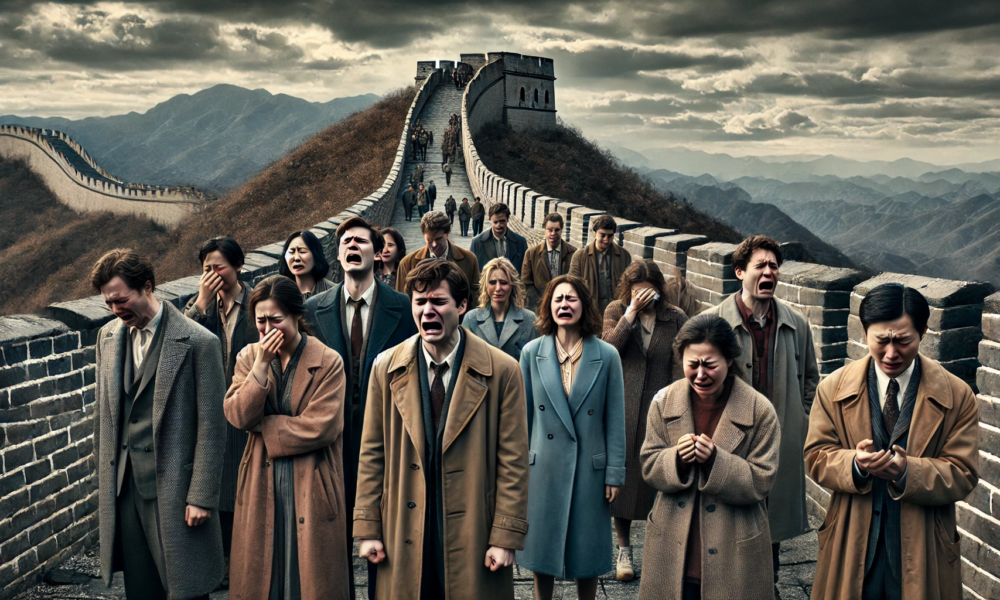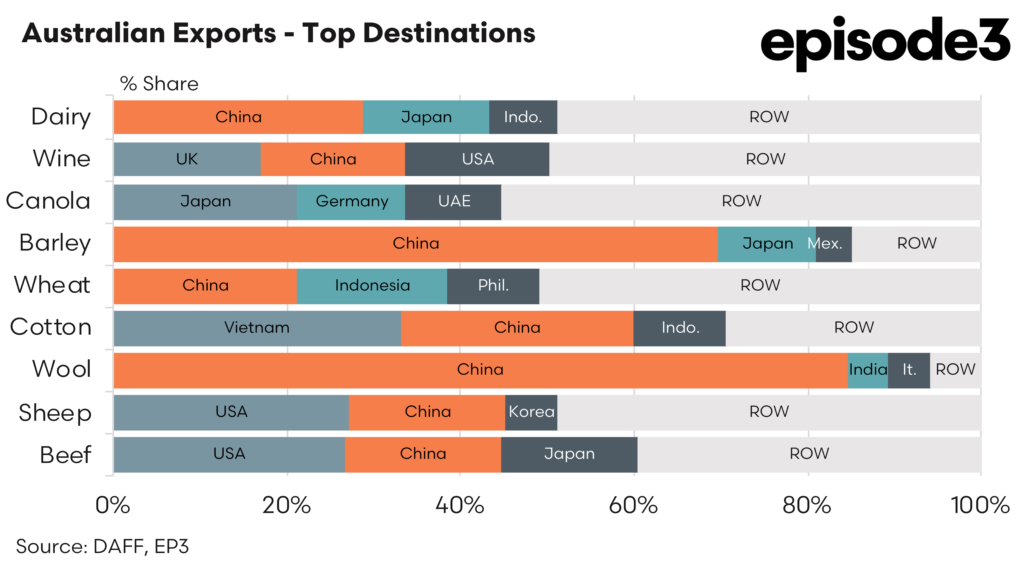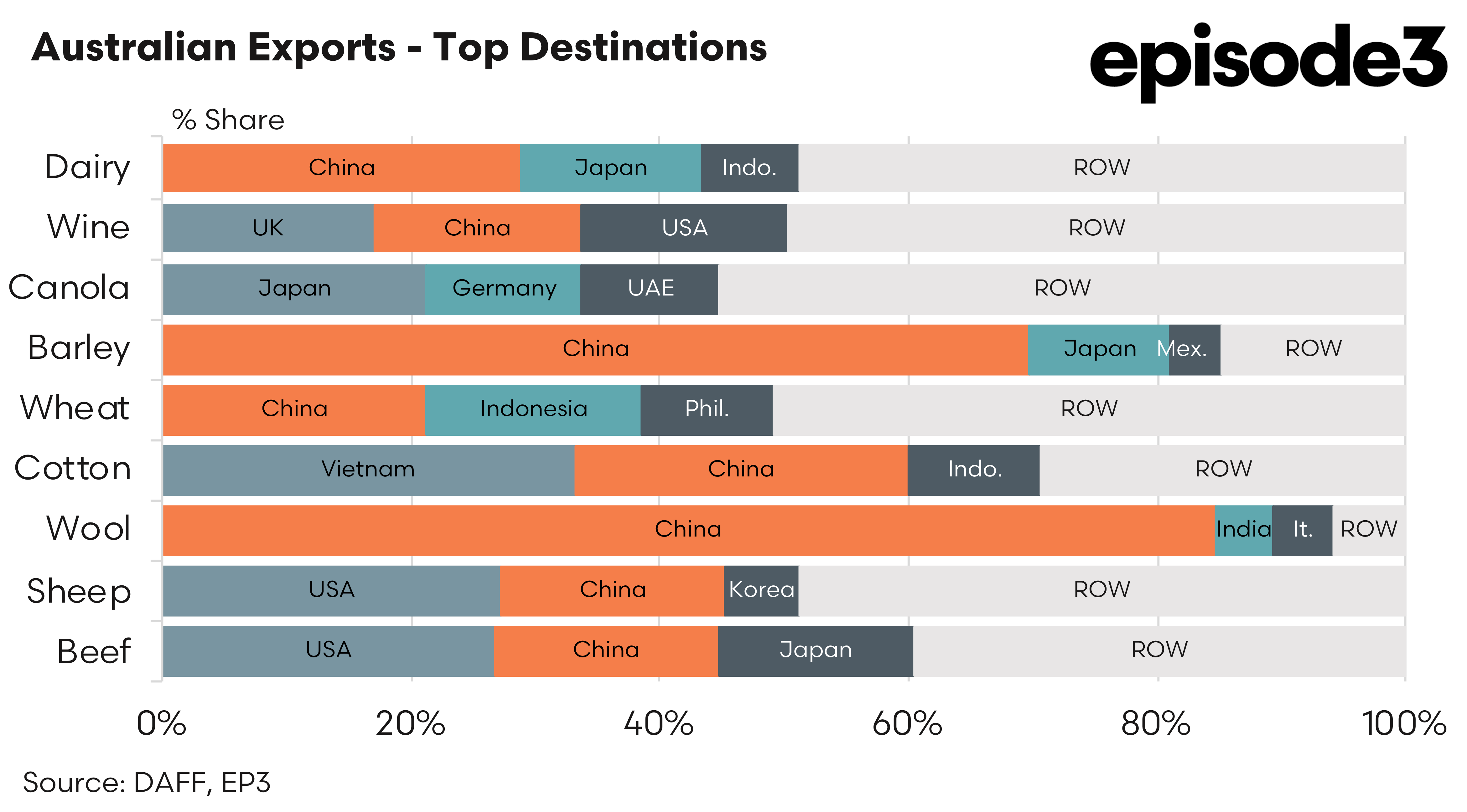We did well from ‘Liberation Day’ – but it is the indirect to worry about

Indirect effects of the Trump tariffs.
The US so-called ‘Liberation Day’ has come and gone, and it seems like Australian agriculture has gotten off lightly. As a nation, Australia has been hit by a 10% tariff, which is the minimum that the US government has placed on nations. It doesn’t matter if you are a friend or foe; exporters to the USA are paying that as a minimum. It might feel like we have largely been insulated from ‘Liberation Day’, but it is not that simple.
We have not received a significant direct impact from these tariffs, but there is an indirect impact through our trading partners, specifically China. China will not be hit by a total tariff of 54% on all goods entering the United States.
One key issue is that many Australian commodities are sold to China, which become part of products later exported to the US. For instance, Australia exports materials like wool, beef, and minerals to China. If Chinese factories and food processors can no longer sell as much to the US because of tariffs, they will reduce the amount they buy from Australian suppliers. So, even though the tariffs don’t apply directly to Australia, Australian producers still end up with lower demand for their goods.
There’s also a broader economic consequence. The Chinese economy has been under increasing pressure, with growth slowing and confidence declining. The added strain of US tariffs has contributed to this slowdown, particularly in export-heavy sectors. As Chinese companies struggle, they hire fewer workers, wages stagnate, and overall consumer confidence drops. When Chinese consumers feel unsure about the economy, they start to cut back on spending, especially on more expensive or imported items.
This change in consumer behaviour has real consequences for Australia. In recent times, Chinese buyers have been major customers of premium Australian products from fine wine and beef to wool clothing and dairy products. As spending habits shift and the Chinese middle class tightens its belt, demand for many of these goods has softened. Australian exporters are left with fewer sales and often have to drop prices or find new markets to stay afloat.
Restaurant closures in China in 2024 hit a historical high, with nearly 3 million closures. This is a direct result of decreased consumer spending and could impact higher value food products, such as red meat. The Chinese consumer is already rationalising their spending, and tariffs have yet to be hit.
The effects go beyond just individual products. The uncertainty caused by the ongoing trade dispute has also made businesses around the world more cautious. Companies are holding off on investment decisions, delaying large supply agreements, and generally becoming more risk-averse. For an export-dependent country like Australia, this means fewer opportunities to grow, less confidence in long-term planning, and a greater sense of unpredictability in global markets.
The country finds itself caught in the middle of a global reshuffle, where old trade patterns are being disrupted, and new ones are still taking shape. Australia may have avoided direct tariffs in this geopolitical tug-of-war, but that doesn’t mean it has escaped the consequences. The impacts are quieter, more complicated – but no less real.


